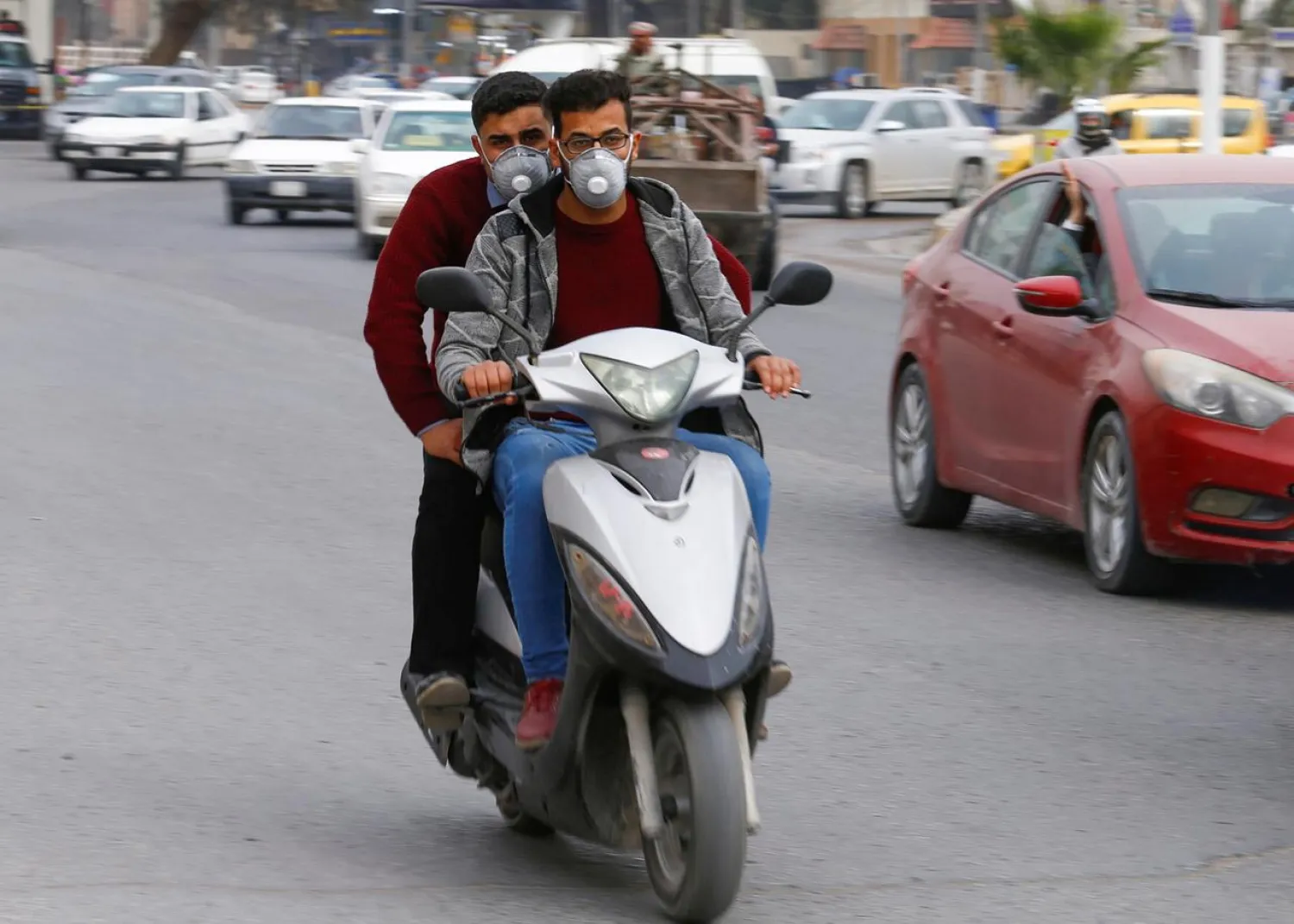Iraq announced on Wednesday the death of two patients from the coronavirus. A 70-year-old cleric died in the Kurdish province of Sulaimaniyah, the first death from the outbreak. The second death was reported in Baghdad, said the health ministry.
The Iraqi preacher had been quarantined in the northeastern city of Sulaimaniyah before his death, a spokesman for the Kurdish autonomous region's health authority said.
According to local sources, he had recently met with Iraqis returning from Iran, which has recorded the third deadliest outbreak outside China, the epidemic’s epicenter.
Iraq has so far recorded 31 cases of COVID-19, one Iranian student who has since been sent home and 30 Iraqis who had all visited Iran recently.
Iraqi authorities have closed land borders with Iran and banned the entry of foreign nationals traveling from there and other badly affected countries.
Iraq’s border port commission said on Wednesday it would halt trade between Iraq and both Iran and Kuwait for a week from March 8 over coronavirus concerns, according to the Iraqi state news agency.
The border port commission added that Iraqis now in Iran would be allowed to enter Iraq until March 15.
Schools, universities, cinemas, cafes and other public places in Iraq have been ordered shut until March 7 to further contain the outbreak, but many continue to operate normally.
Responding to Wednesday's death, Sulaimaniyah Governor Haval Abu Bakr told reporters that all rallies in the province will be banned and that all football matches will now be held behind closed doors.
Local religious authorities for their part announced a ban on mass prayers, including on Fridays, until further notice.
Arab Gulf
Oman on Wednesday registered three new coronavirus cases in people who had visited Iran. It identified them as two Iranians and one Omani.
Wednesday’s cases bring the tally to five, said the health ministry, revealing that two patients have “completely recovered.”
In Bahrain, the health ministry said a citizen, who had contracted the disease in Iran, has recovered. He has been released from isolation at hospital. Medical teams will continue to monitor his recovery.
Eight patients were also released from quarantine. The majority of them had returned to the country from Iran.
North Africa
In Egypt, the cabinet has decided to bar the entry of Qatari nationals, including those who have valid residency in Egypt.
The measure will take effect from March 6 until further notice.
Tunisia will suspend passenger ferry services to northern Italy and take other measures in response to the spreading coronavirus, Health Minister Abdelatif el-Mekki said on Wednesday.
Tunisia confirmed its first case of the coronavirus on Monday, a Tunisian national who had recently arrived from Italy by sea.
In another preventive measure, flights from northern Italy will use a separate terminal at Tunis airport to keep passengers apart before a screening process.
In addition, foreign football fans will be banned from attending games with local clubs, Mekki told a news conference. Two Tunisian teams are scheduled to play against clubs from Morocco and Egypt in the coming days.
Tunisia’s neighbor Algeria has registered nine cases of the coronavirus. Morocco and Egypt have also reported cases. Libya remains the only North African country without a registered patient.









